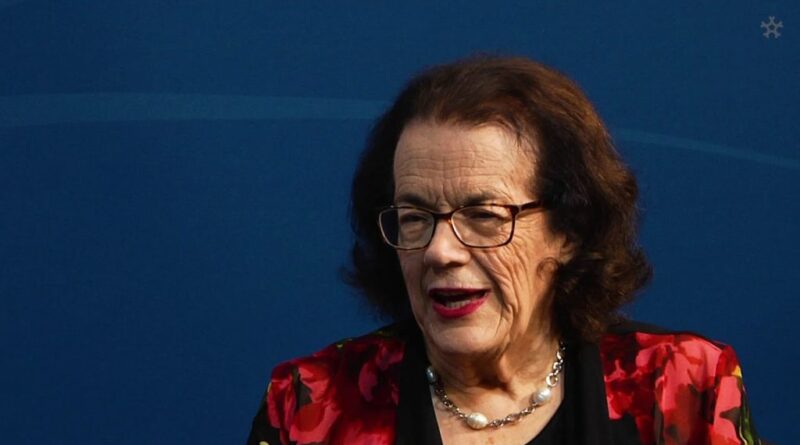Jewish groups ‘highly concerned’ at Wong’s Middle East comments, as Marles says Australian Jews don’t feel safe

Jewish organisations have criticised Foreign Minister Penny Wong over her latest comments on the Israel-Gaza conflict, while Deputy Prime Minister Richard Marles has said Jewish Australians “have never felt less safe”.
As pro-Palestinian demonstrations continued in the major Australian cities at the weekend, Wong on Sunday called on Israel to “cease the attacking of hospitals” in Gaza.
She said steps towards a ceasefire were needed but it could not be one-sided. “We know that Hamas is still holding hostages and we know that a ceasefire must be agreed between the parties,” she told the ABC.
“But we can also say that Israel should do everything it can to observe international humanitarian law. We have seen a harrowing number of civilians, including children, killed. This has to end. We are particularly concerned with what is happening with medical facilities.
“International humanitarian law does require the protection of hospitals, of patients and of medical staff. We do call on Israel to cease the attacking of hospitals,” Wong said.
“We understand the argument that Hamas has burrowed into civilian infrastructure, but […] the international community, looking at what’s occurring at hospitals, would say to Israel, these are facilities protected under international law and we want you to do so.”
Wong’s remarks follow mounting international pressure for a ceasefire and a strong call from French President Emmanuel Macron for Israel to stop bombing Gaza.
But in a joint statement late Sunday the Zionist Federation of Australia and the Executive Council of Australian Jewry said they were “highly concerned” at Wong’s comments.
“The foreign minister stated that ‘we all want to take the next steps towards a ceasefire’, while noting that no ceasefire could be ‘one-sided’. But unless and until Hamas is removed from power, a ceasefire will inevitably further endanger Israel,” the statement said.
In relation to her call for hospital attacks to cease, the statement said under the Geneva Convention hospitals lost their protection if used for military purposes – as Hamas did.
“The libel that any Israeli attack on Gazan hospitals from which Hamas operates would amount to war crimes only serve to demonise the state of Israel and its supporters. These libels are central to Hamas’ objectives […] and are reverberating across the world in a new wave of antisemitism,” the statement said.
It said the Australian government “should not be lending any credibility to this false and harmful narrative.”
Amid rising fears about the division in Australia the conflict is inflaming, Marles condemned Friday’s demonstration in the Melbourne suburb of Caulfield.
He told Sky the demonstration “on behalf of Palestine in the heart of the Jewish community was unacceptable.”
Late Friday, pro-Palestinian and pro-Israel supporters clashed, and a nearby synagogue was evacuated.
The incident followed a fire at a burger shop owned by a man of Palestinian heritage, although police did not believe the fire was related to the man’s attendance at an earlier pro-Palestinian rally. Organisers, Free Palestine Melbourne, apologised for using an area near the synagogue.
Marles told Sky: “I think it’s fair to say that right now Jewish Australians have never felt less safe, and that is a real problem and we need to be moving to fix that. Clearly, antisemitism doesn’t have a place in our country and it’s very important that we are able, no matter what is happening elsewhere in the world, to maintain social cohesion here in Australia.
“Clearly people have a right to protest what’s happening in the Middle East. What’s happening in the Middle East is an unfolding tragedy. And people have the right to put pressure on their country’s government, on us, but there shouldn’t be demonstrations which are aimed at other members of the community. And Jewish Australians, as all Australians, clearly have a right to feel safe within their country.”
Australia has voted for a UNESCO resolution, drafted by Arab countries, that invites the governing bodies of relevant UNESCO conventions and programs “to assess the deteriorating situation in Gaza and develop measures to address its repercussions across UNESCO fields of competence”.
But Australia’s ambassador to UNESCO, Megan Anderson, recorded that despite its support, Australia believed the resolution incomplete because it did not make reference to the Hamas October 7 attack.
The motion passed 96 to eight with 33 abstentions, with the United States voting against.

